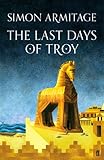 Stefan Zweig’s only novel was published in 1939, on the eve of the Second World War and some three years before his death, and its tale of a naive army officer in pre-World War One Austria seems to be set wholly apart from the terrible times he was living through. But it would be a mistake, in my view, to see it as an escape into ‘the world of yesterday’. Instead, I’d read the novel as an attempt to locate the low poisonous roots of Nazism, roots which later found expression in the despicable doctrine of Lebensunwertes Leben, in the world that Zweig was so familiar with.
Stefan Zweig’s only novel was published in 1939, on the eve of the Second World War and some three years before his death, and its tale of a naive army officer in pre-World War One Austria seems to be set wholly apart from the terrible times he was living through. But it would be a mistake, in my view, to see it as an escape into ‘the world of yesterday’. Instead, I’d read the novel as an attempt to locate the low poisonous roots of Nazism, roots which later found expression in the despicable doctrine of Lebensunwertes Leben, in the world that Zweig was so familiar with.
A review of Sirs & Madams by Joanna C. Valente
 Joanna C. Valente speaks of death in her collection of poems, Sirs and Madams. The poems remind us that we are wrong—dead wrong—if we think of death only as something that happens when life ends. This reminder weaves its way throughout the book and is most poignant when Valente writes about relationships. The stories within the poems are told by “three sisters dangerous as swans, broken into a hundred versions of themselves depending on which day of the week” (Tell Them They’re Dead, 75)
Joanna C. Valente speaks of death in her collection of poems, Sirs and Madams. The poems remind us that we are wrong—dead wrong—if we think of death only as something that happens when life ends. This reminder weaves its way throughout the book and is most poignant when Valente writes about relationships. The stories within the poems are told by “three sisters dangerous as swans, broken into a hundred versions of themselves depending on which day of the week” (Tell Them They’re Dead, 75)
An interview with Melissa Pimentel
 The author of Love by the Book talks about the inspiration for her novel, about the world of dating and her own experiences, on the relationship between agenting and writing, on dating guides, dating advice, and some of her funniest anecdotes.
The author of Love by the Book talks about the inspiration for her novel, about the world of dating and her own experiences, on the relationship between agenting and writing, on dating guides, dating advice, and some of her funniest anecdotes.
A review of The Medici Boy by John L’Heureux
 Donatello, whose concentrated gaze and one time kiss brings to life the embittered Matteo as well as the bronze, or marble upon which the great Master lays his hands seems to breathe life not only into the statues he creates but into the very air breathed by those fortunate enough to share it with him.
Donatello, whose concentrated gaze and one time kiss brings to life the embittered Matteo as well as the bronze, or marble upon which the great Master lays his hands seems to breathe life not only into the statues he creates but into the very air breathed by those fortunate enough to share it with him.
A review of Beautiful Trouble edited by Andrew Boyd and Dave Oswald Mitchell
 The “Principles” range from pithy to profound, including tips like “Don’t dress like a protester” and deeper matters like “Take leadership from those most impacted.” This latter principle means that those on the receiving end of a great injustice have the most to gain from a successful action but will bear the brunt of a failed one. They know the problem and potential solutions better than outside experts do, and their knowledge must be heard and respected within the movement.
The “Principles” range from pithy to profound, including tips like “Don’t dress like a protester” and deeper matters like “Take leadership from those most impacted.” This latter principle means that those on the receiving end of a great injustice have the most to gain from a successful action but will bear the brunt of a failed one. They know the problem and potential solutions better than outside experts do, and their knowledge must be heard and respected within the movement.
A review of The Rough Guide to Vienna by Rob Humphreys
 Happy to have got ahold of Rob Humphreys’ guide to one of the most fascinating cities in the world. Vienna is relatively small as capital cities go, hence many of its key cultural attractions are close together, and it is surrounded by beautiful countryside – the much vaunted, verdant Wienerwald. There’s much to see and do.
Happy to have got ahold of Rob Humphreys’ guide to one of the most fascinating cities in the world. Vienna is relatively small as capital cities go, hence many of its key cultural attractions are close together, and it is surrounded by beautiful countryside – the much vaunted, verdant Wienerwald. There’s much to see and do.
A review of The Secret Lives of Married Women by Elissa Wald
 For all its BDSM and thriller elements, at heart this novel is really just an old fashioned romance (two or three of them, actually) – and that’s no bad thing.
For all its BDSM and thriller elements, at heart this novel is really just an old fashioned romance (two or three of them, actually) – and that’s no bad thing.
A review of Hidden Impact by Charles Neff
 Hidden Impact is a well-crafted narrative chockablock with turns and twists. I enjoyed meeting each of the numerous characters through the eyes of Norberg as he gauges those he had known before along with those who are new to his experience on this expedition. Populated with CIA operatives, dedicated American colleagues, Nicaraguan and activists, devious millionaires, and their insensitive associates; the cast of players is believable, plausible and acceptable.
Hidden Impact is a well-crafted narrative chockablock with turns and twists. I enjoyed meeting each of the numerous characters through the eyes of Norberg as he gauges those he had known before along with those who are new to his experience on this expedition. Populated with CIA operatives, dedicated American colleagues, Nicaraguan and activists, devious millionaires, and their insensitive associates; the cast of players is believable, plausible and acceptable.
A review of Chewed Confessions by Cheryl Kirwan
 In Chewed Confession, Cheryl Kerwin’s Indie Excellence Finalist Book Award book, characters are connected in a straight-forward linear manner. In this case, the characters in these stories are often friends, family, colleagues, or acquaintances. Thus the main character of one story might casually call a friend or family member and this friend becomes the main character in the following story. This is generally the pattern throughout.
In Chewed Confession, Cheryl Kerwin’s Indie Excellence Finalist Book Award book, characters are connected in a straight-forward linear manner. In this case, the characters in these stories are often friends, family, colleagues, or acquaintances. Thus the main character of one story might casually call a friend or family member and this friend becomes the main character in the following story. This is generally the pattern throughout.
A review of The Last Days of Troy by Simon Armitage
 You know the story. The abduction of Helen. The wooden horse. The fall of Troy.Simon Armitage’s new play is a vivid re-engineering of Homer and Virgil, a meditation on ‘own’ and ‘other’, an unblinkered look at the costs and sorrows of war. In truth, a play about war (rather than a lion hunt, say, another ancient theme) will always be of the moment: Achilles mutilating Hector’s corpse; a British soldier giving a thumbs-up over the body of a dead insurgent.
You know the story. The abduction of Helen. The wooden horse. The fall of Troy.Simon Armitage’s new play is a vivid re-engineering of Homer and Virgil, a meditation on ‘own’ and ‘other’, an unblinkered look at the costs and sorrows of war. In truth, a play about war (rather than a lion hunt, say, another ancient theme) will always be of the moment: Achilles mutilating Hector’s corpse; a British soldier giving a thumbs-up over the body of a dead insurgent.